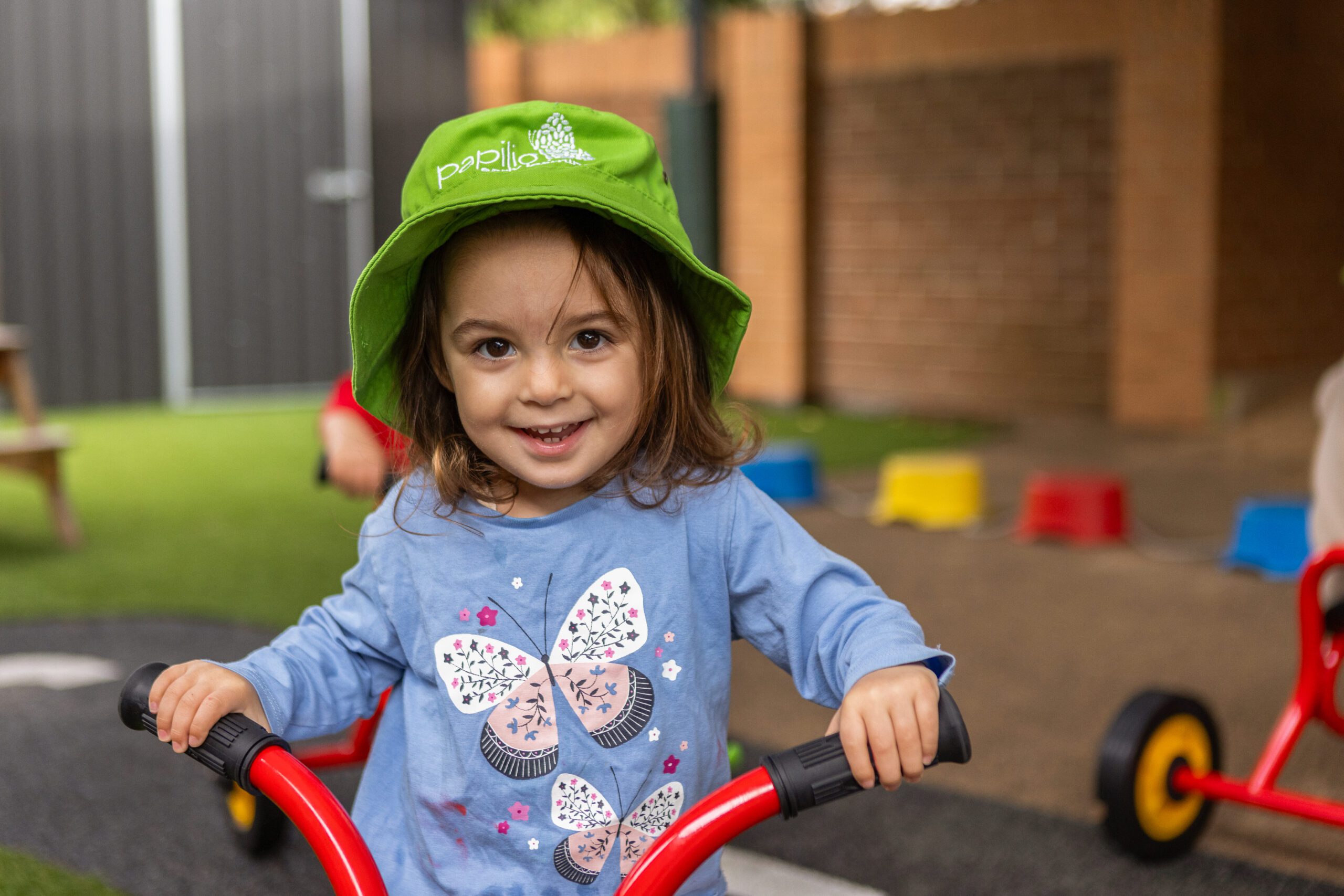
“You clung to my hand as we walked through the door, wide-eyed and silent. I bent down, smiled, and gently nudged you forward, but you held back. Meanwhile, your little brother was already off making friends. I paused. Why is this so hard for you?”
If this moment feels familiar, you’re not alone, and your child isn’t the only one who feels this way.
At Papilio Early Learning, we recognise that every child is beautifully unique. Some children thrive in new settings. Others take a little more time to feel safe and settled, and that’s perfectly okay. For parents, especially those with children of different temperaments, these differences can be surprising. But they’re also a natural and important part of your child’s development.
Whether your child is a toddler just beginning to explore the world or a preschooler preparing for school, feelings of nervousness are common. Knowing how to respond with understanding and support can make a world of difference.
1. Understand That Introversion Is Not Shyness, Or Something to 'Fix'
In her groundbreaking book Quiet: The Power of Introverts in a World That Can’t Stop Talking, Susan Cain explains that introversion isn’t about fear, it’s about how a person processes stimulation. Introverted children may prefer quieter environments, need time to observe before engaging, and recharge with alone time after social interactions.
Your child might not rush to join group play or speak up in new situations. That doesn’t mean they’re behind, it means they’re thoughtful, observant, and aware.
Introverted children often bring incredible gifts - deep empathy, creativity, quiet leadership, and careful observation. These aren’t qualities to outgrow. They’re strengths to celebrate.
2. Create Comfort Through Familiarity and Routine
For children who feel uneasy in new environments, routine builds a sense of predictability and safety. Before your child starts care, visits a new playground, or attends a birthday party, take time to explain what they can expect.
At Papilio, we encourage families to attend orientation visits so children can explore our beautifully designed learning environments at their own pace. Ask your Centre Manager for the daily routine and use it at home to prepare your child. Simple cues like, “First, you’ll put your bag in your locker. Then we’ll take your water bottle and find Miss Palma in the sandpit,” help children feel ready for what’s ahead.
3. Give Them Space to Observe First, Then Encourage Gentle Participation
Children who prefer to watch before engaging are often taking in far more than we realise. Observing is a form of participation - it allows children to build understanding before they act.
You might say,
“We can sit together and watch the others play. When you feel ready, you can join in.”
or
“Would you like to draw next to me while we wait for story time?”
Encouraging small, low-pressure steps builds your child’s confidence while respecting their pace. When they take that brave step, no matter how small, celebrate it with love and warmth.
4. Our Learning Environments Are Designed for Every Child to Thrive
At Papilio, our early learning environments are intentionally designed to meet the needs of every child, including those who prefer calm, structured, and quieter experiences.
Children have access to:
-
Peaceful learning spaces with books, art, and sensory play
-
Small group activities that allow for deeper connections
-
Opportunities for solo exploration and quiet reflection
-
Predictable routines that build trust and confidence
Our exclusive Lifelong Learning Curriculum supports social and emotional development through age-appropriate experiences that encourage secure relationships, emotional resilience, and personal growth.
5. Educators Who Notice and Nurture the Quiet Ones
Quiet children can sometimes be overlooked in busy group environments. At Papilio, our educators are trained to observe not just behaviour, but the intention behind it.
We know how to:
-
Build one-on-one connections that help quiet children feel secure
-
Recognise non-verbal signs of readiness or discomfort
-
Create calm, respectful interactions that support emotional safety
-
Provide gentle encouragement without pressure or overwhelm
We see every child, not just the loudest voices in the room, and we tailor our care to help each one grow in their own time.
6. Books That Offer Comfort and Understanding
Books are a wonderful way to help children navigate new experiences and emotions, especially when they’re feeling unsure. Reading together can create conversations that bring comfort and connection.
For Parents:
-
Quiet: The Power of Introverts in a World That Can’t Stop Talking by Susan Cain
-
The Highly Sensitive Child by Elaine N. Aron
For Children:
-
The Invisible String by Patrice Karst - explores connection and comfort
-
Llama Llama Misses Mama by Anna Dewdney - great for easing separation
-
Wemberly Worried by Kevin Henkes - a relatable story about nervousness
Gentle Support for Your Gentle Soul
Supporting a child who is nervous in new situations takes patience, empathy, and trust - trust in them, and in yourself. While it may not always be easy, especially when their sibling is bold and social, know this: your child doesn’t need to change. They need to be seen, supported, and given the space to grow.
At Papilio, we walk alongside you. Our educators meet each child where they are, creating a calm, nurturing environment where confidence grows, friendships form, and individuality is celebrated.
💛 Curious about how Papilio supports children of all temperaments? We’d love to welcome you for a visit when you and your child feel ready. Find your local Papilio centre here.